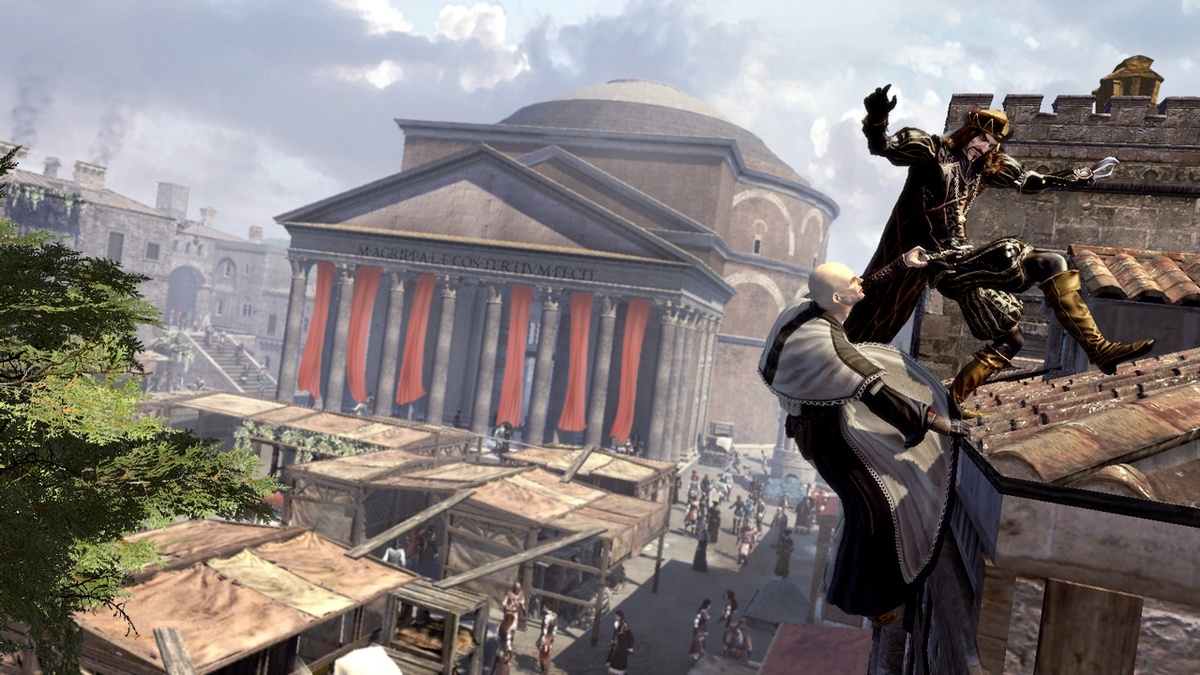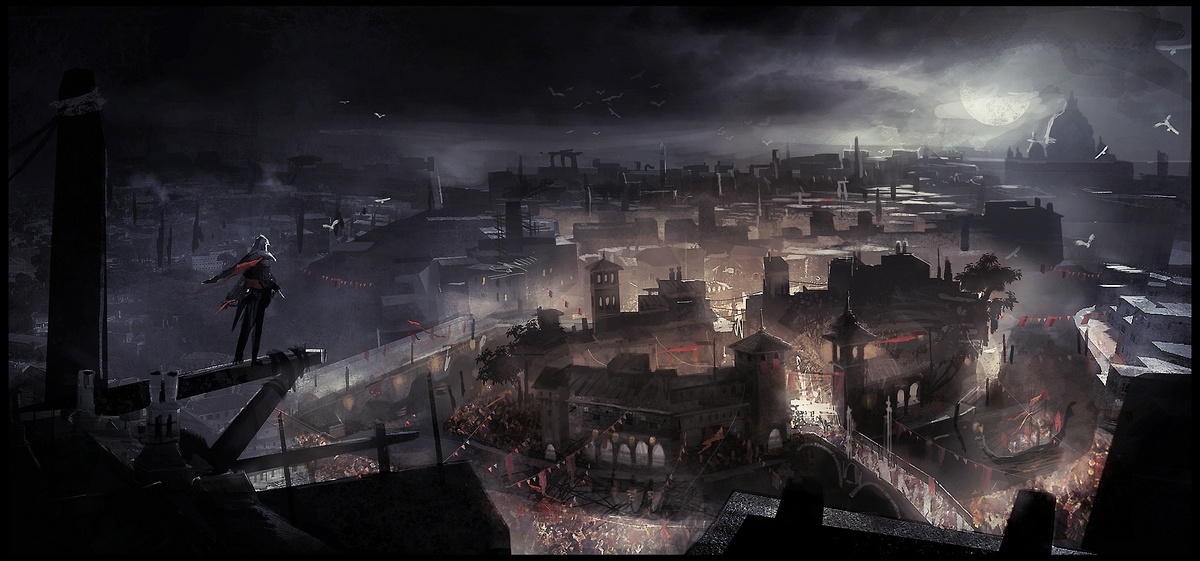Assassin's Creed: Brotherhood Multiplayer Impressions
We dash through the streets of Rome in the new multiplayer mode and chat with the game's creative director about what to expect from single-player.
The next Assassin's Creed game will be the first to introduce multiplayer to the series. If that sounds like a far-flung idea to you, it certainly doesn't to creative director Patrice Desilets. He says that after the release of Assassin's Creed II, the inclusion of multiplayer was the most popular suggestion from fans of the game-- more than the inclusion of brutal new weapons or exotic new cities. And so here we are, the following year, with Assassin's Creed: Brotherhood set to ship this holiday season. Brotherhood will include a suite of multiplayer modes that let players sneak through 15th-century Rome in a quest to silently kill one another, as well as a single-player story that's a direct continuation of Assassin's Creed II.
Separate from the storyline of the single-player campaign, the multiplayer narrative in Brotherhood is described by Desilets as a sort of "Meanwhile at Abstergo Industries" scenario. Multiple test subjects are hooked up to the animus in a place far removed from Desmond Miles, the present-day bartender with the unfortunate luck of having been related to two of history's most infamous assassins. Instead, it's a number of new recruits who have been plugged into Abstergo's magical memory machine in order to play out the great battle between Templars and Assassins.
The one mode we played, Wanted, is like deathmatch with a twist: each player is assigned a specific target from among the other players in the match, so there's always someone after you and someone for you to go after. With a Roman neighborhood full of non-player characters going about their daily lives, you need to blend in with the crowd for maximum effect. Silent kills--those where nobody sees your handiwork--net you the most XP, while visibly running after your target tips him or her off to your presence, giving that player a chance to scurry off and hide. Additional points can also be earned in multiplayer games for kills that are acrobatic, and your pursuer gets close you can earn points either by escaping and hiding or, if you're feeling especially confident, by humiliating him with an ear clap. If your target remains undetected for a set period of time, you lose your contract and have to start over with a new target.
Adding a personal touch to all of this clandestine killing is a system of unlockables that let you earn custom abilities and character skins. The skin we played as was a Roman noble with a metal claw on his left hand, which is just one of many skins with unique weapons and kill animations specific to those devices. You can also assign active and passive abilities, like an ultrafast dash for a brief period or a quick change of costume for a handful of seconds. Both of these abilities have a cooldown period, so there's a good bit of strategy in figuring out the best way to use them. The skins and the abilities are just a couple of examples of the XP-based carrot-on-a-stick system that Brotherhood uses to dole out unlockables over the course of 50 experience levels to keep the game fresh for committed players.
In addition to playing some multiplayer, we also had the opportunity to speak with Desilets about what to expect from the single-player campaign. The game picks up with Ezio building up the brotherhood of assassins in Rome, a city we were shown only a brief sliver of in Assassin's Creed II. In Brotherhood, Rome is more or less the entire game, taking up three times the geography of Florence in the last game. There's less focus on rolling countryside linking a multitude of cities, and more on fleshing out a single bustling metropolis as the game's primary setting.
The story itself will keep Ezio at the forefront and bring a few of his Florentine friends (such as Leonardo da Vinci) along for the ride. You can now recruit able-bodied civilians into the ranks of the brotherhood of assassins and send them off to distant cities like Paris to prove their worth as silent killers. If they survive these trial-by-fire killings, you can take the best recruits along with you on your own story-critical missions.
Replacing Ezio's custom-renovated villa from Assassin's Creed II is the ability to renovate the whole of Rome. You can now take the money you earn and use it to spruce up various parts of town, build new buildings, and just generally "bring the Renaissance to Rome," according to Desilets. We asked him about the issue in ACII where players eventually (and quite easily) achieved unlimited money that they couldn't possibly spend, and he was quick to point out that it was a concern for a lot of people and that they're working on a way to make sure that managing funds takes more skill this time around.
Another big area of refinement is combat. The series has earned a reputation for having a stylish but super-forgiving combat system, and that isn't going to change. Desilets brought up a statistic that said Assassin's Creed II was finished by 40 percent of all players, a remarkable total for a 20-hour action adventure game. He attributed that to the game's relative ease and lack of frustrating, throw-your-controller moments. So instead of making things harder, he wants to instead keep the barrier for entry low and layer on optional difficulty by rewarding skilled players. An example is adding more potential chains and combinations to the flow of combat. Instead of counterattacking one person with a single button, for example, you'll now be able to attack three, four, or five nearby foes with a string of directional attacks all linked together with a fluid motion. We didn't get to see this sort of thing in action, so we're not ready to make any grand proclamations about a completely overhauled fighting system, but the idea of more depth to the combat for those who choose to pursue it is definitely an intriguing notion.
Assassin's Creed II looks, on the surface, like the high-production-value experience that we've come to expect from the folks at Ubisoft Montreal. Now we'll just have to see if the one-year turnaround time since the last game is enough for them to craft a game that improves on Assassin's Creed II in a meaningful way. Keep an eye out for more coverage as we approach the game's holiday 2010 release date.
Got a news tip or want to contact us directly? Email news@gamespot.com


Join the conversation